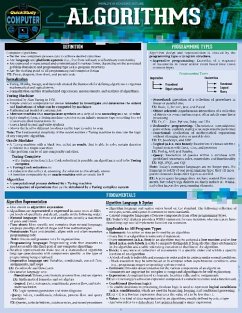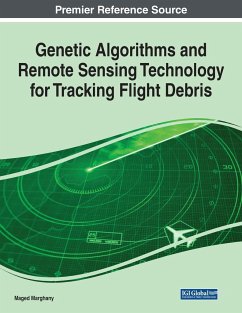
Advanced Signal Processing Algorithms on Multi-Dimensional Data With CUDA
Never Before Seen Algorithms
Versandkostenfrei!
Nicht lieferbar
Unlock the future of signal processing with this comprehensive volume that delves deep into advanced algorithms for multi-dimensional data analysis. This book serves as an indispensable resource for researchers, engineers, and advanced practitioners seeking to harness cutting-edge computational techniques in signal processing. Spanning 99 meticulously crafted chapters, it explores an extensive array of sophisticated algorithms and theoretical frameworks that push the boundaries of current knowledge. Each chapter presents a deep dive into a specific algorithm, offering innovative ideas, origina...
Unlock the future of signal processing with this comprehensive volume that delves deep into advanced algorithms for multi-dimensional data analysis. This book serves as an indispensable resource for researchers, engineers, and advanced practitioners seeking to harness cutting-edge computational techniques in signal processing. Spanning 99 meticulously crafted chapters, it explores an extensive array of sophisticated algorithms and theoretical frameworks that push the boundaries of current knowledge. Each chapter presents a deep dive into a specific algorithm, offering innovative ideas, original theories, and insights into the latest research breakthroughs. Highlights Include: * Optimized Multi-dimensional Discrete Fourier Transform: Discover advanced optimization techniques for implementing the multi-dimensional DFT on large-scale datasets. Learn about novel approaches that reduce computational complexity by exploiting symmetries and utilizing sparse representations. * Accelerated Multi-dimensional Fast Fourier Transform Algorithms: Explore cutting-edge methods that build upon the foundational Cooley-Tukey algorithm. Understand how to partition data domains into optimized sub-regions, enabling parallel processing without sacrificing accuracy. * Sparse Representation and Compressed Sensing in Multi-dimensional Signals: Delve into groundbreaking algorithms that leverage tensor decomposition methods for ultra-sparse representations. Applications discussed include medical imaging reconstruction and remote sensing data analysis. * Graph Signal Processing on Multi-dimensional Data Structures: Examine novel algorithms at the intersection of graph theory and signal processing. Learn how to generalize traditional concepts to graph domains, facilitating analysis of complex structures like social networks and biological systems. * Deep Learning Architectures for Multi-dimensional Signal Processing: Gain insights into the latest deep learning models, such as multi-dimensional convolutional neural networks and recurrent neural networks adapted for spatial-temporal data. * Topological Data Analysis in Multi-dimensional Signal Processing: Explore the application of algebraic topology concepts, like persistent homology, to extract shape-based features from complex data sets, enhancing capabilities in data mining and material science. * Advanced Kalman Filter Techniques in Multi-dimensional Spaces: Learn about sophisticated algorithms extending the standard Kalman filter to high-dimensional state spaces, with innovations in adaptive covariance estimation and nonlinear state models. * Multi-dimensional Empirical Mode Decomposition Algorithms: Understand how to generalize EMD to higher dimensions, enabling decomposition of complex signals into intrinsic mode functions for applications in image processing and environmental monitoring. * Hybrid Time-Frequency Analysis in Multi-dimensional Signal Processing : Discover how to combine the strengths of various transforms within a unified framework, allowing simultaneous analysis of localized and global features in complex applications like seismic data interpretation. * Nonlinear Multi-dimensional Signal Processing with Kernel Methods: Investigate algorithms that map high-dimensional signals into reproducing kernel Hilbert spaces, enabling nonlinear operations with linear complexity. Applications in pattern recognition and data compression are discussed.








